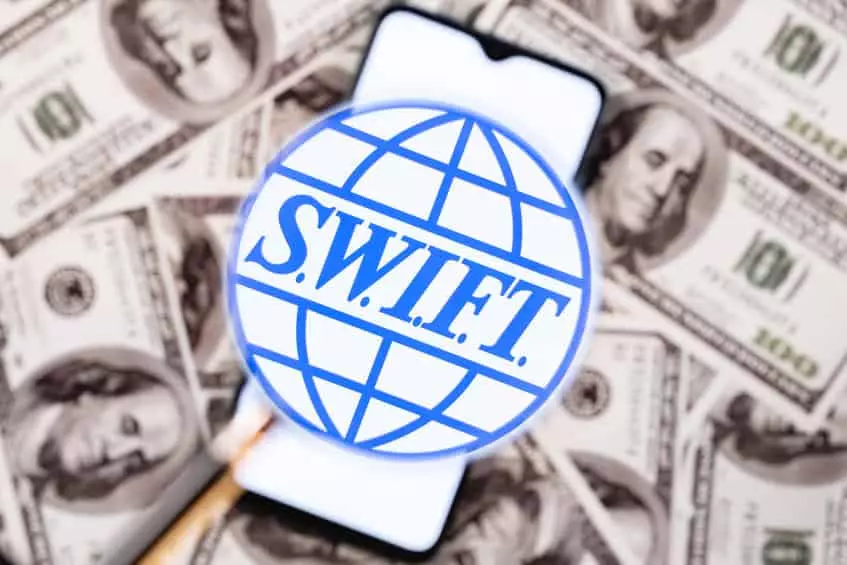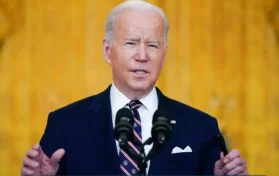
As Vladimir Putin’s Russian forces crept ever so close to a Ukrainian invasion, President Joe Biden announced the first round of economic sanctions on Moscow and the Kremlin. By Thursday, Putin’s forces had physically moved into the Ukraine, and Biden approved another round of sanctions. The Thursday sanctions included a “squeeze” on Russia’s ability to obtain integrated circuit technology, particularly in the form of superconductors, as well as economic sanctions that would affect a large portion of Russia’s financial assets.
While Biden posited that these sanctions would have heavy consequence, some political pundits criticized Biden’s choice not to remove Russia from SWIFT. In fact, one reporter asked why that action hadn’t been considered. Biden replied his Thursday sanctions “(are of) maybe more consequence than SWIFT.”
However, many Americans aren’t familiar with SWIFT, and they have questions about this financial system. So, what is SWIFT? Would cutting Russia off from SWIFT system be a sanction that really “has teeth”?
SWIFT is an acronym which stands for Society for Worldwide Interbank Financial Telecommunications. In essence, SWIFT is not a financial institution itself, but rather a global messaging system that connects international financial institutions.
In fact, SWIFT connects over 11,000 worldwide financial institutions in more than 200 different countries. The system is overseen by the European Central Bank and the United States Federal Reserve (among other international banking systems).
According to a Harvard University director of Russian and Eurasian Studies, “It doesn’t move the money, but it moves information about the money.” SWIFT is integral to exchanging money over a wide variety of currencies.
Via a video post, Ukrainian President Volodymyr Zelenskyy pleaded with the European Union leaders as well as United States President Biden to “cut Russia off from SWIFT” as an economic sanction. Let’s examine how this particular sanction would affect the country financially.
Should the United States and the European Union decide to utilize this type of sanction, the effect on the Russian economy could be quite devastating. According to USA Today, it would ‘damage the country’s economy right away . . .and cut Russian off from a swath of international financial transactions.” Most damaging would be international profits from oil and gas production. Currently, the production of oil and gas is over forty percent of Russia’s economy.
A good example of how catastrophic cutting Russia off from SWIFT is the economic impact a similar sanction had on Iran in 2012. When Iran was banned from SWIFT, the country “lost half of their oil export revenues and thirty percent of foreign trade.”
The United States and Germany have already worked together on one economic sanction that should deal a ruinous financial blow to Russia. Some months earlier, President Joe Biden had waived sanctions that would stop construction of the Nord Stream 2 pipeline which would pump natural gas from Russia to Germany as well as other Eastern European countries. Deciding to impose sanctions on the Nord Stream 2 was part of the first round of sanctions against Russia that Biden announced early last week.
A January CNBC report stated that Russia would lose “tens of billions of dollars” if the Nord Stream 2 pipeline’s construction was halted.
When Biden was asked on Thursday why he had not pulled Russia from SWIFT so far, he also mentioned that countries in the EU did not wish to go forward with that sanction at the time. However, some leaders seem to be changing their stance, meaning a SWIFT sanction could be in the works.
On Saturday morning, Italy’s Prime Minister said that his country supported “Russia’s disconnection from SWIFT.” Although its leaders had originally been one of the countries that resisted cutting Russia from SWIFT, by Saturday, Germany now seems to be in support of the move.
German Foreign Minister Annalena Baerbock as well as German Economics Minister Robert Habeck issued a joint statement in which they said, “What we need is a targeted and functional restriction of SWIFT.”
Many have criticized current sanctions on Russia, especially since President Putin has seemed to shrug them off. However, with sanctions that could very well cripple the Russian economy, the United States as well as nations in the European Union could assist the Ukraine as they fight to hold on to their beloved country.





